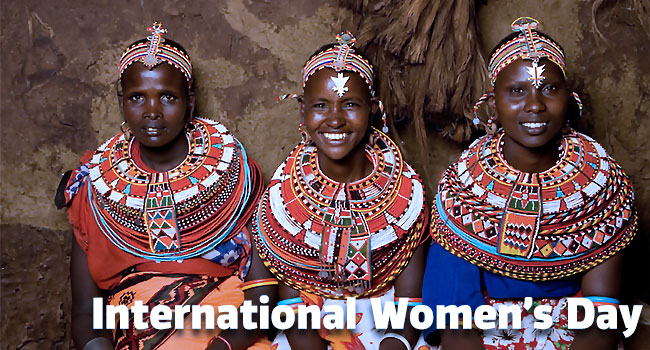International Women's Day 2016

There are people, both men and women, who wonder why the world takes time to celebrate women. It actually may sound a bit far-fetched considering many societies in the world are majorly patriarchal. However, despite that, it is amazing that every year a day (8th March) is set apart to recognize women for their achievements. This commemoration has helped to build support for women's rights and participation in both the political and economic arenas.
The theme for this year's International Women's Day is; 'Pledge for Gender Parity'. A simplified definition for gender parity is basically calculating the quotient of the number of females by the number of males enrolled in a given stage of education.
Education is one of the Millennium Development Goals (MDGs). In fact, it is listed as the second goal by the United Nations (UN); "To Achieve Universal Primary Education". This involves entering school at an appropriate age, progressing through the system and completing a full cycle.
Article 26(2) of the Universal Declaration of Human Rights further emphasizes that; "...Education shall be directed to the full development of the human personality and to the strengthening of respect for human rights and fundamental freedoms..."
In Kenya, education is valued to the extent of being offered freely to children from all walks of life. This is an opportunity that was given to both male and female children back in the year 2003. From this, there was an increase in enrolments to school in most parts of the country, and as a result, an increase in the literacy level. It is however sad to note that, despite this incredible increase in the number of enrolled pupils, there are communities in Kenya, especially from the marginalized groups which cannot express the same success in their schools.
I will use Samburu County as a case study. In this community, schools are not a priority for the girl child. It is not because they hate education or are not interested, but rather because their culture leans more on supporting the boy child than the girl. Most of the traditions do not favor the girl child, who is unfortunately viewed as part of a man's property and a source of wealth by the community. Most Samburu girls are married off at a very tender age as a source of wealth to their fathers. There are the lucky few who may be enrolled in a school but even of those, fewer get to complete the full cycle of education.
If you were to drive around Samburu County; it is not uncommon to see girls as young as 6 years old tending to their parents' livestock. The shocking thing is that majority of their male counterparts are in school as they do not risk being forced into early marriages, and hence the parents find it worthy to invest in their education. The practice of 'beading' which can also be referred to as engagement has contributed to cases of early pregnancies and as a result girls drop out of schools. Beading is when a young man referred to as a 'moran' identifies a girl to be his girlfriend and gives her a particular beaded necklace as engagement, hence the term beading. This is a ticket to engage in casual, unprotected sex with the girl, who at times is too young to comprehend what is happening. In case the beaded girl was in school, then unfortunately gets pregnant, she automatically drops out of school and in most cases does not get the chance and courage to go back. The level of illiteracy is quite high in this community and it is unfortunate to note that the girls are the majority out of school.
In light of this year's theme, we are all called to commit ourselves to ensuring there is gender parity. The government should ensure that all children, despite their gender or background, are able to access equal opportunities in school. We believe that through the ministry of education, the government can make this a reality. Other non-state actors also have a role to play to ensure that young girls, who are the future of this nation, are not left out. There is room for women to do more to support each other. Provisions in the Constitution have made it possible for women to be uniquely and fully represented in Parliament. Women leaders should take advantage of this and push for more legislation that can help solve issues that affect women and increase overal women empowerment. Women should also take more responsibilty in protecting their daughters from retrogressive cultural practices by actively reporting these cases to the relevant authorities. With the General Elections coming up in the next year, we encourage women to be careful to vote in large numbers for leaders who have their best interests at heart.


